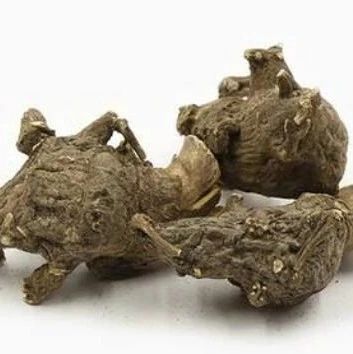↑Click the blue text above to follow Health Management, and feel free to share with your friends

Health Management
Knowledgeable, warm, and with attitude, making your life healthier!
Health Encyclopedia | Wellness Information | Parents’ Classroom
Aconite (Fu Zi) is a commonly used Chinese medicinal herb. It has a pungent taste and a warm nature, with effects of warming the spleen and stomach, and dispelling cold and pain. In Traditional Chinese Medicine (TCM), Aconite is often used to assist in treating cold bi syndrome, rheumatism, and pain conditions. Let’s explore the effects and functions of Aconite, as well as the populations that should avoid it!
1. The Four Major Effects and Functions of Aconite
1. The warming effect of Aconite on the spleen and stomach is primarily manifested in its ability to warm the middle and dispel cold, enhancing the functions of the spleen and stomach, and promoting digestion and absorption. In TCM, the spleen and stomach are considered the “central” and “fundamental” organs; when their functions are poor, it can lead to a series of gastrointestinal issues. Aconite improves the cold condition of the spleen and stomach, enhancing digestive capacity and alleviating symptoms such as cold pain in the stomach, abdominal distension, and loss of appetite caused by poor spleen and stomach function.
2. The cold-dispelling and pain-relieving effect of Aconite is mainly reflected in its ability to eliminate internal cold pathogens and relieve cold-type pain. TCM believes that cold pathogens invading the body’s meridians can lead to obstructed qi and blood flow, resulting in cold bi pain.
3. Aconite has a warming effect that can expel internal cold pathogens, relax the meridians, and promote the circulation of qi and blood, thereby alleviating cold-type pain. Aconite is effective for conditions such as rheumatoid arthritis, cold damp bi pain, and abdominal pain.
4. Aconite has a drying dampness effect, which can eliminate internal dampness and improve damp-related conditions. In clinical practice, Aconite is often used to assist in treating damp-heat jaundice, eczema, and diarrhea.
In summary, Aconite has the effects of warming the spleen and stomach, dispelling cold and pain, and drying dampness. Its rich toxic components and other ingredients can exert analgesic, antibacterial, and cold-dispelling pharmacological effects. Clinically, Aconite is often used to assist in treating cold bi syndrome, rheumatism, and pain conditions. However, due to its high toxicity, it should be used under the guidance of a physician, with attention to dosage and method of use.

2. Populations That Should Avoid Aconite
Aconite is widely used to assist in treating rheumatic diseases, bi syndrome, and spleen and stomach deficiency. However, despite its significant pharmacological effects, Aconite also has certain toxicities. Therefore, it is important to note that specific populations should avoid using Aconite to prevent adverse reactions.
1. Pregnant and breastfeeding women should avoid using Aconite. The components of Aconite contain highly toxic secondary cardiac toxins, which can have harmful effects on fetuses and infants. These toxins can enter the placenta or breast milk through the bloodstream, potentially leading to developmental abnormalities or severe poisoning reactions in the fetus or infant.
2. Young children should also avoid using Aconite. Due to their incomplete physical development, children have relatively low drug metabolism capabilities and are more sensitive to drug toxicity. Therefore, administering Aconite to children not only increases the risk of toxic side effects but may also adversely affect their growth and development.
3. The elderly should also exercise caution when using Aconite. As people age, liver and kidney functions gradually decline, leading to reduced drug metabolism capabilities. Consequently, elderly individuals are more prone to drug accumulation or toxicity when using Aconite. Additionally, Aconite can have a stimulating effect on the heart in the elderly, potentially causing arrhythmias and other adverse reactions.
In conclusion, while traditional Chinese medicine Aconite has certain pharmacological effects, it also possesses toxicity. Therefore, its use should be rational based on the characteristics of the populations that should avoid it. Different groups should pay special attention to avoid using Aconite to prevent adverse reactions, ensuring the safety and effectiveness of the medication.

After reading, remember to click “Looking” to safeguard your health and that of your family!
Click the business card below to “Follow” Health Management for more health and wellness information, making your life healthier!

 Health Management is with you for your health Xiao Ai WeChat mph011 Video account @ Health Management
Health Management is with you for your health Xiao Ai WeChat mph011 Video account @ Health Management
Editor: Xiao Ai (Wechat: mph011)
Note: Source from the internet | Shared content for reference only | Please consult a physician for medication

